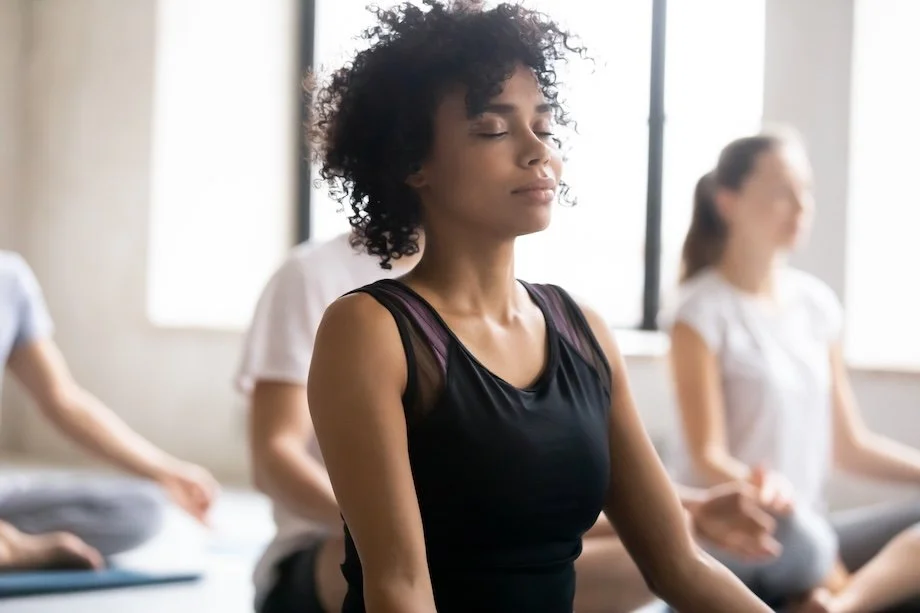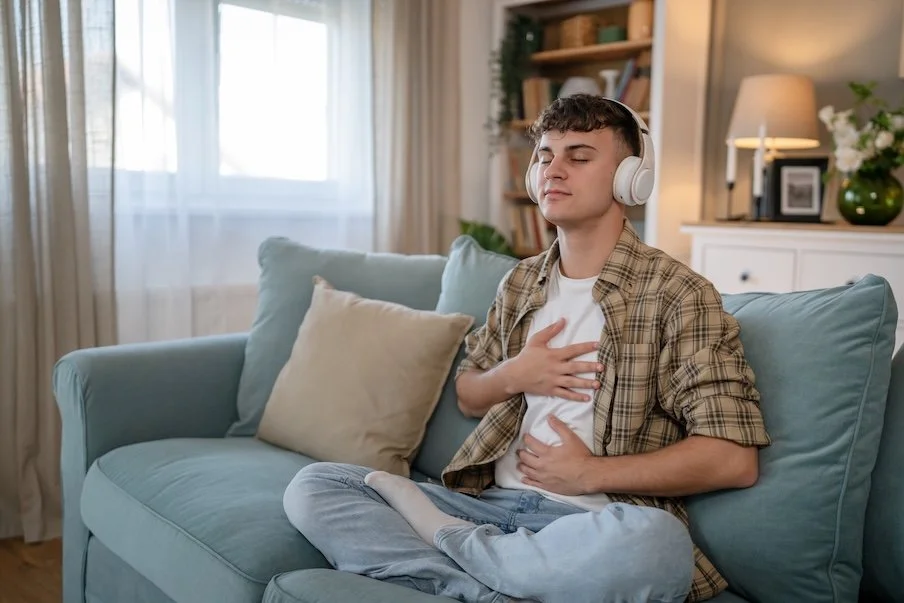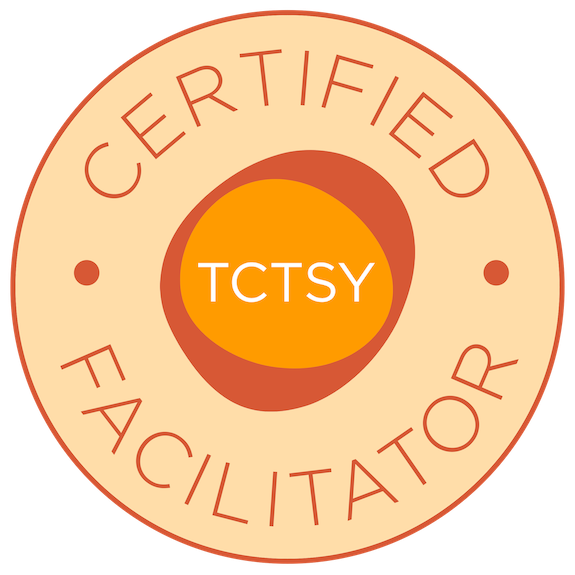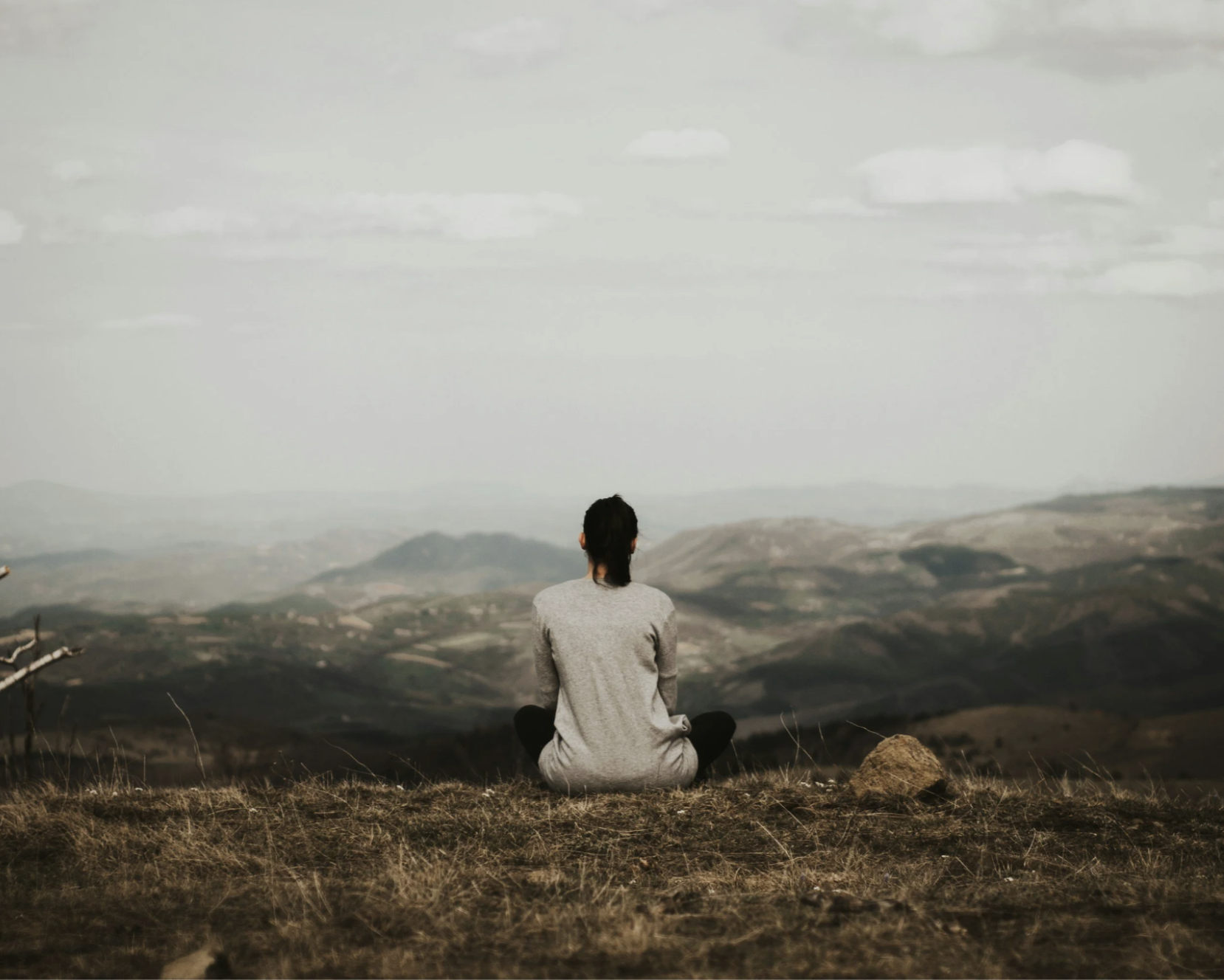
a Trauma-sensitive embodied approach for lasting recovery
Yoga and Somatic Healing for Trauma
You’ve tried to feel better. HAVE YOU TRIED BETTER FEELING?
You’ve seen therapists, taken medications, maybe even gone on retreats or started working out or doing yoga religiously, only to feel even more exhausted or burned out. Despite all of it, the heaviness and tension linger, and you may be stressed to the point that it’s affecting your work and relationships.
You want to feel at home in yourself — not numb, not disconnected, not endlessly striving to be enough, not performing for others.
You’re ready to:
Be able to calm yourself when things get difficult with portable tools that work, without needing a doctor, pill or therapist to “fix” you.
Build healthier, more patient relationships with the people you love.
Break free from destructive compulsions — scrolling, drinking, overeating, overworking — and feel more present in your daily life.
Feel at peace in your own skin — to feel safe and grounded in your body, not at war with it.
This work is designed for people navigating the impacts of trauma, chronic stress and/or mental ill health, symptoms of which may include depression, anxiety, low self-worth, relationship struggles or emotional reactivity. If you feel like you’ve “tried everything” and nothing has stuck — this is for you.

“All yoga teachings share a core belief: That connecting and relating, whether to ourselves or to others, is central to human nature. When the relating is consistently indifferent or threatening, our survival systems dominate and the stage is set for us to shut down, withdraw and become sick. When one is consistently related to with compassion, our systems are balanced and support the development of our highest capacities.”
— Alexandra Cat, Teaching Faculty, Center for Trauma & Embodiment, TCTSY facilitator & NHS researcher.
Why what you’ve tried so far hasn’t worked
Most of what’s offered to people struggling with mental health — talk therapy, medication, even gym classes or fast-paced yoga — focuses on the mind, or on controlling symptoms, and asking: “what’s ‘wrong’ with you?”
But when the focus shifts to asking: “what happened to you” instead, and exploring how your body - your nervous system - adapted to help you survive certain experiences over time, you can start to address underlying causes.
It is in the body - and away from the stories our mind has created about us - that recovery often begins.
When trauma or chronic stress overwhelm your system, it may be because your nervous system is stuck in a heightened ‘survival mode’ that served you well in the past, but is now - long after the original events have passed - sabotaging your capacity to live a full and free life. You can’t just talk or think your way out of it, but you can retrain your body to feel safe and alive in the present.
This is where trauma-sensitive embodied practice comes in.
HOW WE CAN WORK TOGETHER
OPTION 1:
TRAUMA CENTER, TRAUMA SENSITIVE YOGA (TCTSY) THERAPEUTIC SESSIONS - book them as you need them or as a course of sessions
TCTSY is an empirically validated clinical intervention for complex (inter-relational) trauma or chronic, treatment-resistant post-traumatic stress disorder (PTSD), both of which profoundly change our relationship with our body. I recommend exploring TCTSY in the first instance if you have a diagnosis you are seeking to address or if your symptoms have become life-limiting.
This modality can be delivered one-to-one or in small group sessions, for example for a charity or other service provider. They can be attended in person (if it make sense geographically) or online via Zoom. Below I outline the steps involved in this option.
-
We begin with a conversation about what’s going on for you, what you’re struggling with, and what you want to achieve, and I will tell your more about TCTSY and a session is like practically. This initial call is free and you are under no obligation to subsequently work with me.
-
If we decide it’s a good fit to work together, I will send you my TCTSY intake questionnaire. It asks a series of questions, the answers to which help me understand how best to work with and support you. The more information I have the better, however, you are also free to choose not to answer a question/s.
-
The sessions are usually up to an hour long (though that is flexible) and we decide whether to do them in person or online. You can then decide if you want to book further sessions with me.
-
You can book further sessions with me as you go, according to your needs, or you can book a block of sessions. I will do my best to fit these in with your schedule.
OPTION 2:
ENGINEER STILLNESS®, MY STRUCTURED, 40-DAY EMBODIED self-PRACTICE DEVELOPMENT PROGRAM, a mix of live practice & bespoke recordings
I design a completely individual practice for you, which you can then do at home, with regular check-ins and guidance from me. This is not a clinical intervention, however it can be adapted to be trauma sensitive.
The idea is to endeavour to do your practice every day or as regularly as possible over 40 days in order to really embed this new habit of self-practice in your lifestyle.
It lends itself really well to working one-to-one with me, however, I can adapt this program for small groups of up to 4 people maximum. Below I outline the steps involved in this option.
-
During a free initial call, you tell me what’s going on, what you’ve tried, and what you’re hoping for. I’ll explain how I work and answer your questions so you can decide if it feels like the right fit.
-
If we decide it’s a good fit to work together, I will send you my ES intake questionnaire. It asks a series of questions, the answers to which help me understand how best to work with and support you.
-
Based on your needs, your schedule, and your goals, I create a personalised embodied practice incorporating a toolkit of techniques, with the trauma-sensitive aspect dialled up or down as needed. These tools are practical, portable, and adaptable, able to be built into a routine.
-
I familiarise you with the framework I’ve created and my reasons for doing so and listen to your feedback. We meet - online or in person - to workshop the physical postures and breath techniques together and adjust them for your body. My approach is collaborative. You know your body best.
-
We meet twice — in person or online — to do the whole practice together with me guiding you. This is where you become more familiar with the techniques, structure and rhythm of your practice. There’s opportunity to feed back again and make any further adjustments.
-
After the initial two practices together, you receive professionally edited recordings of your practice of varying lengths (to support those busy days) so that you can continue with your practice at home.
-
You endeavour to do your practice every day or as regularly as possible for the next 40 days, learning your practice by heart. This means that eventually you could be able to self-guide, without recordings.
-
These calls can be fitted around your schedule and offer an opportunity to share your experiences as you integrate practice into your life. It’s also a space for me to listen, reflect back and offer supportive insights. I may also suggest practical adjustments as you progress.
-
You may have guessed by now that our 40 days together are just the beginning. The beginning of integrating a new way of being - self-led wellbeing, using tools you are walking around with every minute of every day. Our day 40 review is a chance to reflect on the journey so far and make a plan moving forward.
-
Over time, you develop the knowledge, skills and self-awareness to regulate your own nervous system, reconnect with yourself, and navigate stress differently — no matter where you are or what comes your way.
-
A month after your final day 40 check in, we have a follow up call to see how you’re doing. You can use this call in any way you like.
OPTION 3:
ENGINEER STILLNESS® together, A variation of my structured, guided 40-day program adapted for groups
The program offers the opportunity to gain all the benefits of empowering yourself by developing a self-led practice, but to do so in connection with a small group of others. Time and again, community has been identified by experts in trauma and holistic healthcare and wellness as crucial to recovery.
All live sessions are done together, both practice sessions and the weekly ‘check in’ support calls, to enable mutual encouragement and sharing of experiences. Although the practice is not individually tailored, limiting group size still enables me to tailor some aspects. And as with the one-to-one program, the degree to which the practice is trauma sensitive can be dialled up or down.
To see a step-by-step breakdown of what the group version fo this program would look like, click the button below.

Ready to Take the First Step?



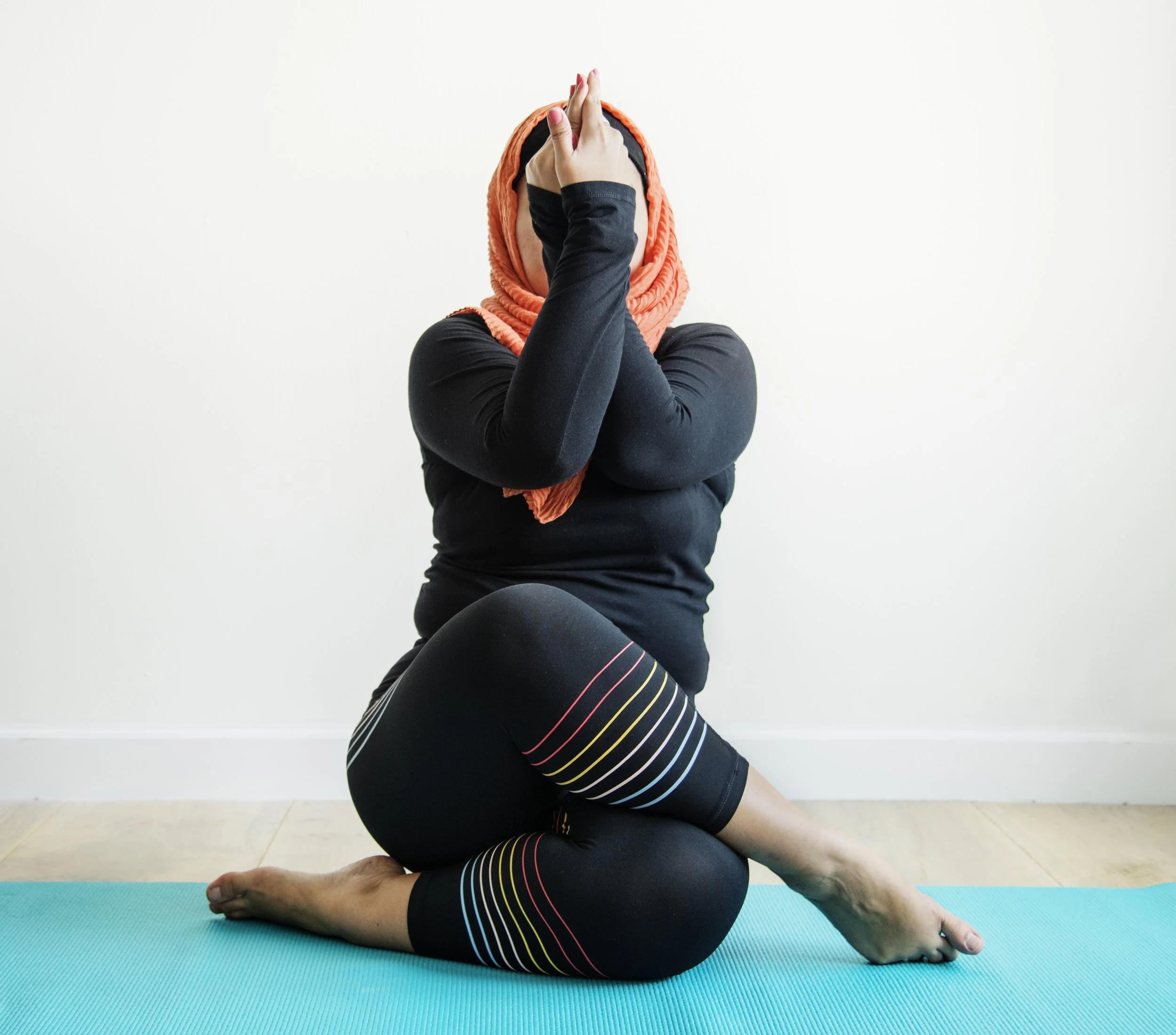

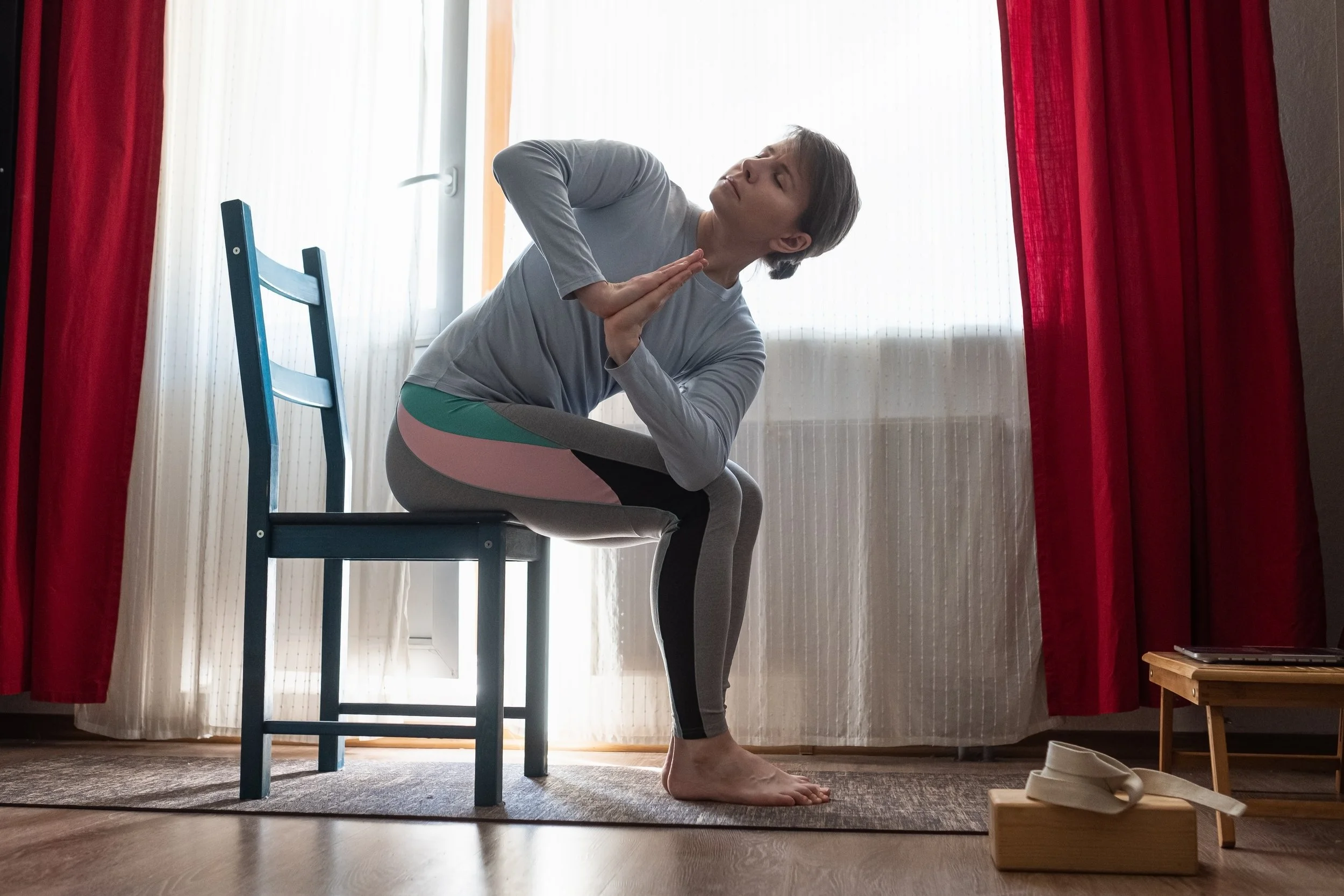
Is This Right for Me?
-
This isn’t about stretching or tricky poses — it’s about helping your nervous system feel safe again. The practices are gentle, accessible, and tailored to you.
-
Most yoga classes focus on fitness or performance, which can actually make stress worse. This work is designed specifically for your mental and emotional recovery — no pressure, no comparison, no pretzel shapes.
-
No. This approach works even if you don’t want to revisit your experiences. You’re welcome to share if you want, but it’s not required.
-
That’s fine — this can complement what you’re already doing, or offer an alternative if you’re looking for a different approach.
-
We go at your pace. Many people find the structure and support of this work actually helps them feel more capable and less overwhelmed.
-
Not at all. This is about what’s happening inside — not how your body looks or moves. Everything can be adapted for you.
-
"Thank you for understanding me better than I do. I can learn from you to understand myself better."
Monika, Psychiatric Nurse, Germany
-
“I have had an eating disorder for a long time, my goal was to settle down, to rest and to be kinder to myself. The stresses of my job means I also find it hard to be present, often being in my head negative thinking, planning or judging. What really helped me is that Charlotte always gave me options and was flexible in taking input from me and responding to how I was feeling. It helped me to listen to my body and what I needed, and really helped me to be open to this kind of work.”
Wiebe, Headhunter, Germany
-
"I was surprised at getting interested in my body. Charlotte’ calm guidance changed my resistance. I have been practicing ever since then, almost every day. It makes me feel secure and safe in my own body. I have returned to work with her again and develop new personalised practices to explore this method more deeply.”
Heike, Peacebuilding Advisor, Pakistan

DAVID EMERSON & JENN TURNER
David & Jenn are co-creators of Trauma Center Trauma-Sensitive Yoga (TCTSY) for the Center for Trauma and Embodiment in Massachusetts. They have developed, conducted and supervised TCTSY groups for rape crisis centres, domestic violence programs, residential programs for youth, active-duty military personnel, survivors of terrorism, veteran’s administration centres and more. Here they unpack more about what TCTSY is and how it helps people working through trauma to re-claim their agency.
What is the financial investment?
TCTSY
1-1 sessions for individuals:
Initial ‘hello’ chat - free
£120 per session, for those in employment.
The first paid session would be an intake / assessment call, including review together of a detailed intake questionnaire and planning the schedule of next sessions.
£60 - £80 per session (income dependent), for people in receipt of benefits/social support or otherwise on reduced incomes.
Again, the first paid session would be an intake / assessment call, including review together of a detailed intake questionnaire and planning the schedule of next sessions.
If you would like to organise group sessions, feel free to get in touch with me to explore.
ENGINEER STILLNESS® PROGRAM
Initial ‘hello’ chat - free.
An investment of £2000 as a single payment once we’ve agreed to move forward and work together, or payment plans are available, for example, £500 per month over four months.
If the wish is to explore this as a small group of minimum 4 people, the cost is £500 per person.
If you are interested in finding out more, whether about arranging one-to-one sessions or online group sessions, please fill in the form below and I will be in touch with you to arrange a call.

